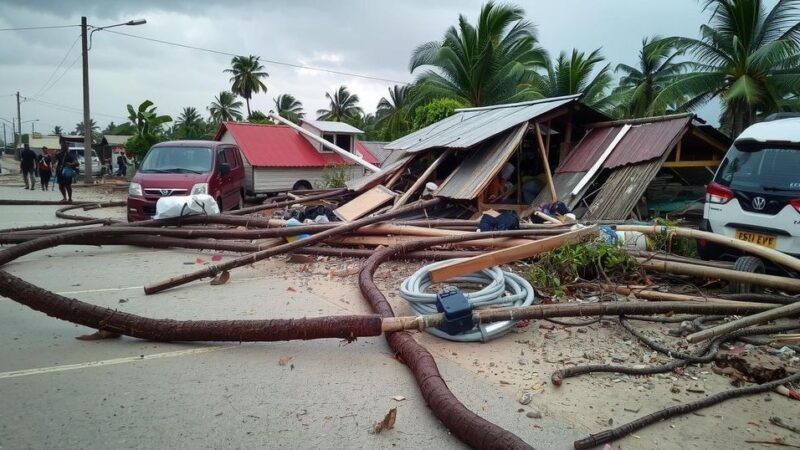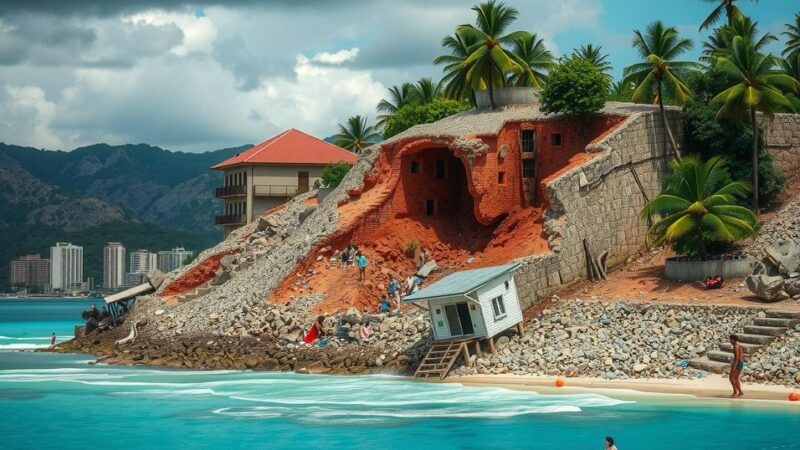At the UN Baku Climate Conference, Azerbaijani President Ilham Aliyev criticized colonial governance in island territories by France and the Netherlands, connecting these practices to ongoing climate vulnerabilities. His remarks triggered outrage among European representatives, who viewed them as detracting from the conference’s objectives. Aliyev condemned past nuclear testing and highlighted human rights issues in these regions, advocating for recognition and decolonization efforts.
During the recent UN Baku Climate Conference, Azerbaijani President Ilham Aliyev condemned the colonial administration of certain island territories by France and the Netherlands, emphasizing their vulnerability to climate change. Such territories, Aliyev argued, are victims of neo-colonialism, which exacerbates their plight amidst rising sea levels and extreme weather events. His remarks drew ire from French and Dutch officials, particularly Finland’s chief negotiator, who labeled the speech as distractive from the conference’s agenda. President Aliyev underscored the significant environmental damage inflicted upon these overseas territories, pointing specifically to France’s historical nuclear testing in Polynesia, which resulted in severe contamination. He expressed concern over the neglect of island populations, and highlighted human rights violations occurring in these territories, particularly in New Caledonia, where recent protests turned deadly. Aliyev demanded international acknowledgment of these issues, urging the decolonization of affected regions. In response to his comments, France announced the absence of its Minister of the Environment from the conference, while the Dutch Ministry of Foreign Affairs rejected Aliyev’s claims as unfounded. The discussion illuminates ongoing debates regarding colonial legacies and their implications for contemporary environmental and social justice issues in the context of global climate change.
The discussion surrounding climate change is increasingly intertwined with issues of colonialism, especially as vulnerable regions highlight their challenges under existing political structures. Island territories under the administration of colonial powers are particularly susceptible to climate impacts, including rising sea levels and extreme weather events. This reality has drawn attention to the role of colonial legacies in exacerbating environmental injustices. The critiques by President Aliyev during the Baku Climate Conference reflect a growing urgency among leaders from affected regions to confront these historical injustices while advocating for meaningful climate action.
In conclusion, President Ilham Aliyev’s statements at the Baku Climate Conference underscore the intersection of climate change and colonialism, spotlighting the vulnerabilities of certain island territories under foreign rule. His critiques of France and the Netherlands reveal significant concerns regarding environmental management and human rights within these regions. The backlash from European officials illustrates the contentious nature of colonial legacies and their relevance in discussions about global climate responsibility.
Original Source: aze.media







